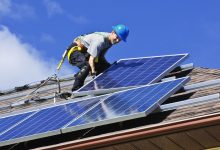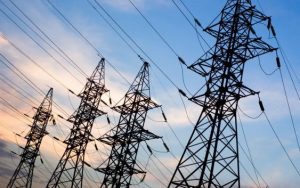The major political parties in NSW have answered calls to get serious about renewable energy and climate policy in the state, with both the incumbent Coalition government and opposition Labor Party unveiling plans over the weekend aimed at boosting solar and battery storage uptake.
First off the mark was Labor, which on Saturday has proposed to extend the rollout of rooftop solar to half a million more homes across the state over the next 10 years, if successful in the March 23 election.
The NSW opposition party said on the weekend it would provide rebates of up to $2,200 for solar panel systems for 500,000 homes over the next 10 years, in an effort to double the number of homes in the state with PV panels to a total of one million.
It would add 2GW of rooftop solar to the state’s grid by 2028, just short of Labor’s 2.6GW target in Victoria, where the Labor state government has a similar target.
The solar rebate deal, which would be limited to owner occupied households with a combined income of up $180,000, is expected to result in average electricity bill reductions of between $600 and $1000 a year to those that install them
The Berejiklian government quickly followed suit on Sunday, with a promise of interest-free loans for solar batteries and solar and battery storage systems, through a 10-year Empowering Homes program that will target up to 300,000 households.
The policy will provide no-interest loans of up to $9,000 for a rooftop solar and up to $14,000 for solar plus storage. As with the Labor scheme, eligible households must be owner-occupiers and have an annual household income of up to $180,000.
Unfortunately, there is no specific support, despite the urging of many solar groups and RenewEconomy in the past, for low income households.
The two major parties are running neck and neck in the polls, with analysts suggesting that a returned Coalition government, albeit in a minority position, is the most likely outcome at this stage. That invites the prospect of Mark Latham, former federal Labor head and now leader of One Nation in NSW, holding the balance of power.
Both proposals have been welcomed by green groups, who just last week called for stronger action from both parties on on renewables and climate in the state.
Ironically, the positions taken by the two parties are almost diametrically opposed to that taken in last year’s South Australia poll, when the then Labor government developed a policy of zero interest loans, and the then Liberal Opposition proposed rebates.
The Victoria Labor government also unveiled a major rebate program for solar, and a bit for batteries, before its November poll, and the success of that is already reflected in the booming solar market in Victoria, which became the national leader in January for the first time since July, 2008.
Labor’s Adam Searle says the solar rebate announcement is just the first of a series of policy unveilings focused on energy and climate.
As Giles Parkinson wrote just last week, NSW remains the only mainland state in the National Electricity Market without a renewable energy target, despite the fact it likely faces the biggest transition, in the race to replace its rapidly ageing coal power fleet.
Until now, the NSW Coalition government had been focused on looking at the state’s transmission constraints, with little else to support its zero-net emissions target for 2050.
Clean Energy Council Chief Executive Kane Thornton said the major parties should be congratulated for embracing solar and batteries as one of the most effective ways to make the grid cheaper, cleaner and more reliable.
“As with other renewable energy technologies, one of the biggest barriers for consumers in taking up energy storage is the up-front cost,” Thornton said.
“The zero-interest loans of up to $15,000 for solar and storage systems proposed by the government would provide people with the means to store energy from the sun, for use when it is most needed.
“NSW Labor’s strong commitment to support an additional half a million households in the state with solar rebates of up to $2200 per household over the next decade will … ensure a vibrant industry and provide expanded opportunities for solar businesses and installers.
Thornton also noted that it was “very important” that the announced programs had appropriate safeguards to ensure solar systems being installed were of a high standard of safety and quality.
“These policies are a great start, and we look forward to more announcements in the lead-up to the election,” he said.
Nature Conservation Council CEO Kate Smolski welcomed the news as “a good first step,” but said there was also a need for policies for renters and others currently locked out of the rooftop solar market.
“This is a great start and we look forward to the ALP now releasing a comprehensive climate and energy policy to slash emissions, further accelerate our transition to clean energy, and generate hundreds of clean energy jobs,” Smolski said.
“There are about 450,000 homes in NSW with solar panels – around 15 per cent – so this announcement would double that number and help homes generate almost 10% of the state’s electricity needs.
The Smart Energy Council has also welcomed the policy proposals, and used the new momentum on the NSW energy policy front to push for more action from the federal Coalition government.
“This will be a massive boost for families struggling with power bills and a great result for the New South Wales solar industry,” said SEC CEO John Grimes in comments.
“The NSW Opposition’s approach is a stark contrast to the Morrison government, which continues to demonise clean energy and boost polluting coal.”
“Just yesterday, the Deputy Prime Minister and Nationals Leader, Michael McCormack, said ‘We don’t want to go down a path of renewables’,” Grimes said.







